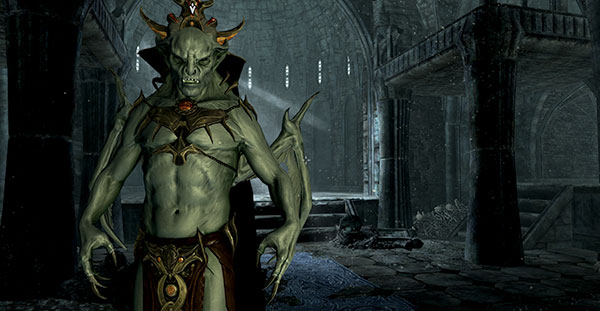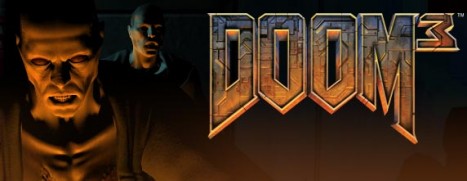
We've recently updated the PC Gamer Skyrim Mods collection. Collections are just lists of mods, but they make it super easy to install them all at once: we check they’re good and that they all work together, and you just click a ‘Subscribe to all’ button. They’ll all be downloaded and added to your game the next time you start it up, and they’ll even be updated as the creators improve them. We already brought you the best of our steam collection once, but now we're bringing you a round up of all the new mods we've added since then.
Previously we told you we'd split our mods into two collections, Improvements and New Content. Now we've added a third, Graphics, which collects the best visual enhancements for your Skyrim experience.
We'll be adding to all three collections continually, so if you have any suggestions please mention them in the comments below.
Xenius character enhancement
Xenius' character tweaks and enhancements were some of the first Skyrim mods to arrive, and they're still among the best. This mod actually consists of a dozen other, smaller mods. Each one subtly smooths out the bumps and jagged edges of Skyrim's player and NPC models, but without making them overly glamorous or deviating too far from Bethesda's intended look.
This mod appears in the graphics collection.
Lush Grass and Lush Trees
Skyrim may be memorable for its stony mountains and icy glaciers, but Bethesda's foliage deserves some recognition as well. The trees and forests of Skyrim are just as impressive as its more barren landscapes. These two mods, Lush Trees and Lush Grass, make Skyrim's plant life just a little bit prettier, ensuring your vistas are greener than ever. To see this mod at its best, I recommend a tour of Falkreath Forest.
These mods appear in the graphics collection.
Realistic Lighting
Realistic Lighting is probably one of the biggest graphical improvements you can make to your game without resorting to post processing. This mod tweaks balance of light and shadow all over Skyrim. The result is clear, every part of the game looks a little more defined, a little more real, a little more rounded. It also makes nights and dungeons much darker, putting more emphasis on torches and light spells.
This mod appears in the graphics collection.
W.A.T.E.R.
W.A.T.E.R, or Water And Terrain Enhancement Redux, grew out of the classic Realistic Water Textures mod we've featured on PC Gamer before. Sadly the creator of Realistic Water stopped updating the mod, so the W.A.T.E.R. team stepped in to build a new version from scratch. W.A.T.E.R. redesigns every river, lake and ocean in Skyrim to be ebb and flow in a more realistic and far prettier fashion.
This mod appears in the graphics collection.
Enhanced Distant Terrain
This self proclaimed 'small but mighty' texture mod is focused on the long view. By upgrading all of Skyrim's long distance textures it gives the impression of a much better draw distance without overly taxing your PC. Skyrim is all about distant landscapes, and this mod makes them all look just a little bit crisper and nicer.
This mod appears in the graphics collection.
Better Dynamic Snow
I don't know if you've noticed, but Skyrim is a pretty snowy place. Half the country is a freezing wasteland, so it's a shame that the snow can often look a little flat and boring. The problem is 'Dynamic Snow' the snow that falls from the sky and sticks to other objects, it's a fairly simple white texture. This mod replaces that texture with the far prettier snowy ground texture, resulting in much more appealing winter landscapes.
This mod appears in the graphics collection.
Unofficial Skyrim Patch
This mod does exactly what you'd expect it to do. Modders realised they could patch the game faster than Bethesda, so they banded together to fix whatever bugs they could. The mod is being constantly updated, fixing new bugs as they emerge and updating the patch whenever Bethesda themselves release an official fix. There's also a variety of subtle tweaks, like making sure Brand Shei (above) eventually get out of prison after you frame him, so you aren't robbed of his services forever.
This mod appears in the improvements collection.
Chopping Wood/Wood Fires fix
Bethesda's official texture pack is terrific, and I certainly recommend you try it, but if you do I also recommend you download this mod, which fixes some problems it causes. Specifically it fixes the textures for chopping blocks and wood fires, which looked a little off in the original release (see above). So unless you want your fires to have a disturbing unearthly glow, you want this.
This mod appears in the improvements collection.
Specialised Followers
Skyrim's followers are pretty cool guys, there's dozens of them across the land, and they have lots of different personalities. The problem is that their abilities are kind of similar, and some of them don't make much sense. Why does Jzargo have heavy armour training? How come every Housecarl is the same? This terrific mod tweaks every single follower, giving them all new stats, new perks and new special abilities, making them all useful in different ways. Kharjo now sneaks even in heavy armour, making him the perfect companion for thieves, Jenassa disappears from combat to backstab enemies and Derkeethus can fire exploding arrows.
This mod appears in the improvements collection.
Better Horses
This mod replaces both Whistle and Faster Horses in our mod collection, doing everything they do and more. Better Horses lets you adjust the speed of your horse and call them from a distance, but it also makes him run from combat, gives different breeds different abilities and makes sure they won't detect you when stealthed. It's also fully compatible with Horses for Followers, which is why we've included both in this pack.
This mod appears in the improvements collection.
Horses For Followers
One of the things that always bothered my in Skyrim was the fact that whenever I rode off on my horse, my follower would get left behind, desperately sprinting after me. This mod, actually two mods, Horses for Followers and Better Follower Improvements, combine to fix this problem in the best possible way. Install them and you can buy a horse specifically for your companion to ride. They'll automatically mount up as you ride off, and their horse will always follow yours. It's a simple improvement, but one of my favourites.
These mods appear in the improvements collection.
Upgrade Levelled Items
Unique items are some of the coolest and most powerful equipment in Skyrim. The only problem is that many of them are scaled to your level. If you find Dragonbane at level 7, you'll have a much worse version than if you found it at level 14. This is annoying, as it means the best way to get great items is to ignore them till the endgame. Thankfully this mod lets you upgrade levelled items at any forge, bringing them up to your own level, so you don't need to throw away Chillrend just because you got it too early on.
This mod appears in the improvements collection.
Realistic Map and Roads
Skyrim's 3D world map is very pretty, but it isn't always helpful for getting you where you need to know. This mod improves the map by adding meticulously hand drawn roads, making it much easier to navigate. Hats off to modder '3 weeks here don't delete me' for having the enormous patience to get this done.
This mod appears in the improvements collection.
Arrowsmith
Skyrim's crafting system is pretty comprehensive, but it misses one trick, you can't make arrows. This mod adds fletching to the game, letting budding archers make their own ammunition. Making an arrow requires feathers, which can be obtained by plucking chickens in town or shooting hawks out of the sky, whichever you prefer.
This mod appears in the improvements collection.
Plant Trees
Plant Trees is a special case amongst Skyrim mods, it's the product of Bethesda's own community manager Nick Breckon. The mod adds a plant vendor just outside of Whiterun, who sells a variety of seeds which will (eventually) grow into plants. He also sells a staff which makes flowers bloom on whatever it's pointed at, including people.
This mod appears in the new content collection.
Hedge Knight Armour
Hothtrooper44 is the man behind some of best armour mods in Skyrim. This is his Hedge Knight Armour, a wonderfully detailed set of heavy plate. The whole set has a great gritty medieval look, not a fancy knight in shining armour, more a grim and deadly Game of Thrones feel.
This mod appears in the new content collection.
Warchief Armour
Man those Sabre Cats can be annoying when you first start playing Skyrim. Always jumping you on the road, constantly threatening you as you go from place to place. Wouldn't it be nice if, when you got to a higher level, you could kill one and wear it as a hat? This mod lets you do just that. The Warchief Armour set a very different flavour from the rest of Skyrim, with a more tribal feel.
This mod appears in the new content collection.
Redguard Knight Armour
A third cool armour set for you. This one is an armoured version of the Redguard clothing already in the game. It has a decidedly Saracen theme, in perfect keeping with Skyrim's depiction of Redguards.
This mod appears in the new content collection.

 Review copies of Madden NFL 13 arrived today. EA Sports usually sends out funny premiums with its review guides, like it did with a yardage book for Tiger Woods PGA Tour 13. This year, they included a quarterback wristband—the kind you see Peyton Manning or Aaron Rodgers flipping up and staring at during a two-minute drill—to highlight the new audible commands for the Kinect-enabled version of the game.
Review copies of Madden NFL 13 arrived today. EA Sports usually sends out funny premiums with its review guides, like it did with a yardage book for Tiger Woods PGA Tour 13. This year, they included a quarterback wristband—the kind you see Peyton Manning or Aaron Rodgers flipping up and staring at during a two-minute drill—to highlight the new audible commands for the Kinect-enabled version of the game.






 Paul Steed, an artist whose video game career spanned design, publishing and even console development, died unexpectedly, according to The Jace Hall Show. Steed was perhaps best known for work on Wing Commander and Quake and also for controversies arising in his time ad id Software.
Paul Steed, an artist whose video game career spanned design, publishing and even console development, died unexpectedly, according to The Jace Hall Show. Steed was perhaps best known for work on Wing Commander and Quake and also for controversies arising in his time ad id Software.

 Now they've got big plans. They're simultaneously developing three games. One is a SimCity or Civilization-like town builder called Steam Bandits: Outpost. The second is sort of an action-RPG inspired by games like Privateer and League of Legends. The third is a flight simulator not unlike Crimson Skies.
Now they've got big plans. They're simultaneously developing three games. One is a SimCity or Civilization-like town builder called Steam Bandits: Outpost. The second is sort of an action-RPG inspired by games like Privateer and League of Legends. The third is a flight simulator not unlike Crimson Skies.







